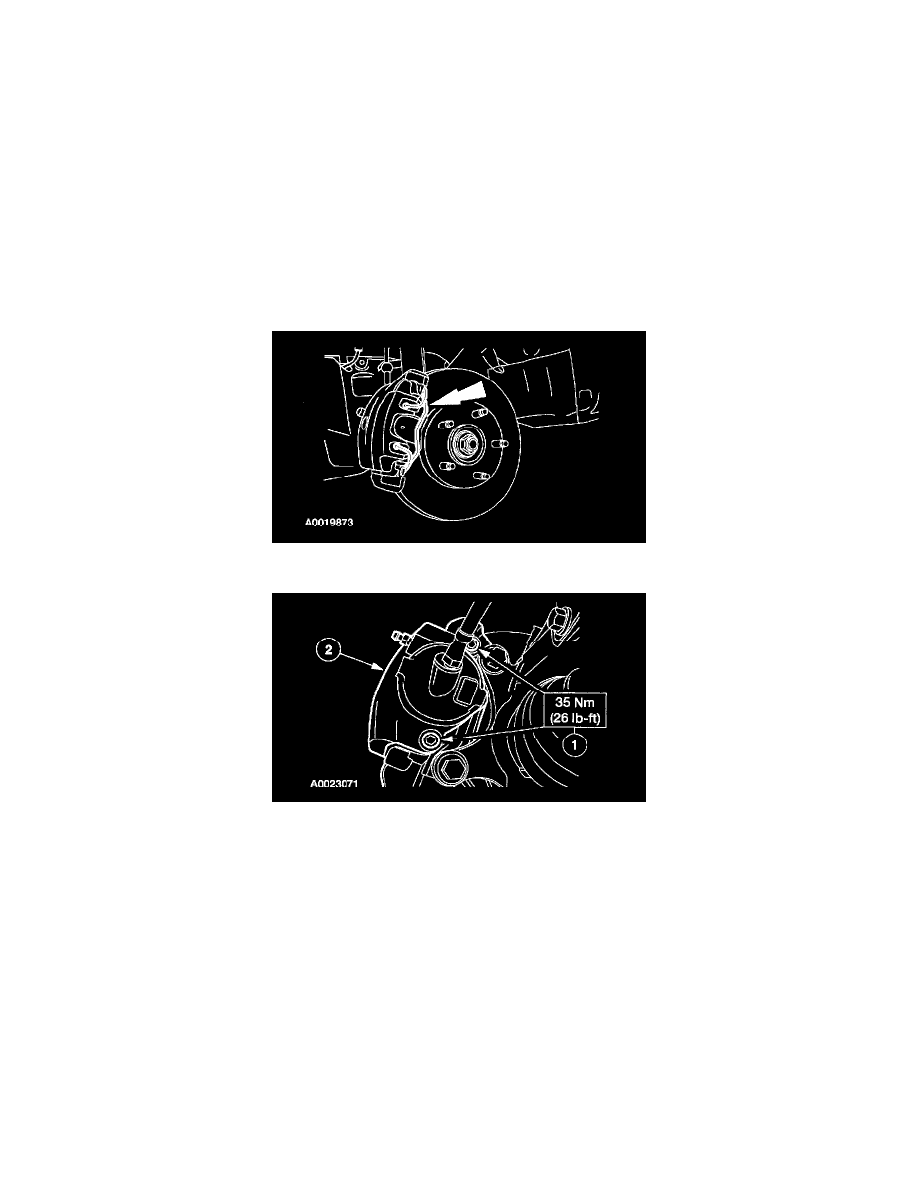Tribute ES 4WD V6-3.0L DOHC (2002)

Brake Caliper: Service and Repair
Brake Caliper
Removal and Installation
Removal
Warning:
^
Asbestos fiber dust may be present on brake and clutch assemblies and is hazardous to health if inhaled.
Brake and clutch assemblies should be cleaned using a vacuum cleaner recommended for use with asbestos fibers such as a
brake/clutch/service vacuum. The bag must be labeled per OSHA instructions, sealed, and the trash hauler notified as to the bag's
contents.
If a vacuum suitable for asbestos is not available, cleaning should be done wet. If dust generation is still possible, technicians should wear
government-approved toxic dust purifying respirators. Failure to follow these instructions may result in personal injury.
1. Remove the wheel and tire assembly.
2. Remove the brake caliper clip.
3. Position the caliper aside.
1. Remove the brake caliper bolt caps and bolts.
2. Position the caliper aside.
Warning:
^
Brake fluid contains polyglycol ethers and polyglycols. Avoid contact with eyes. Wash hands thoroughly after handling. If brake fluid
contacts eyes, flush eyes with running water for 15 minutes. Get medical attention if irritation persists. If taken internally, drink water
and induce vomiting. Get medical attention immediately. Failure to follow these instructions may result in personal injury.
Caution:
^
Do not allow the brake master cylinder degas bottle to run dry during the bleeding operation. Keep the brake master cylinder degas bottle filled
with the specified brake fluid. Never reuse the brake fluid that has been drained from the hydraulic system.
Caution:
^
Brake fluid is harmful to painted and plastic surfaces. If brake fluid is spilled onto a painted or plastic surface, immediately wash it with water.
Note:
^
When any part of the hydraulic system has been disconnected for repair or a new component has been installed, air may get into the system and
cause spongy brake pedal action. This requires bleeding of the hydraulic system after it has been correctly connected. The hydraulic system
